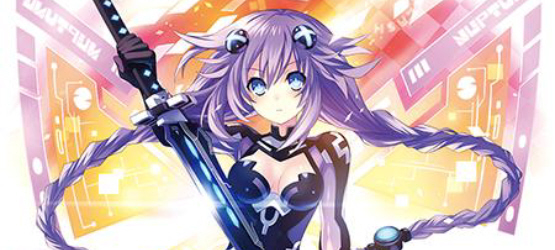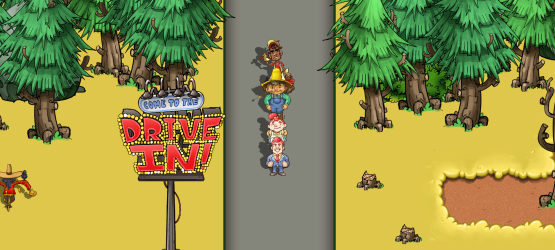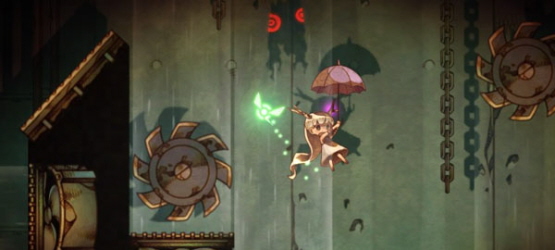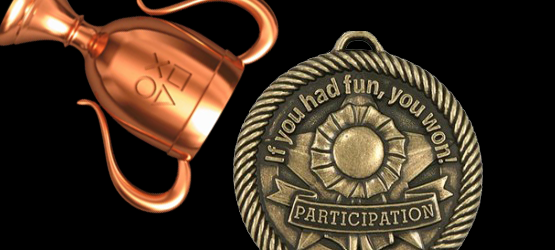January is a time to start anew. With a tumultuous 2014 behind us, the first month of the new year brings with it promises of a renewed gaming lineup. While there were plenty of winners, we also had a few games that needed some work. We bring you the start of a new feature, “Thanks for Playing,” where we highlight the games released during the past month that received the lowest scores. But we’re not here to relentlessly bash on a developer for a couple of mistakes. There’s actual human beings behind these creations, and so we aim to provide constructive criticism and feedback to add to the discussion.
Were there any other games that released in January that you were personally disappointed by? Let us know your thoughts in the comments below.
Thanks for Playing - January 2015
-
Hyperdimension Neptunia Re;Birth2 SISTERS GENERATION (Vita)

Score: 6.0/10
Reviewed by: Cameron Teague
Read our review here. This is the series with a long name starring facsimiles of video game consoles. They even battle in a Console War! The series has never been very well-received by critics, but it seems to have developed a large enough following to continue to be ported to Western audiences.
What Went Wrong?
Re;Birth2 SISTERS GENERATION is a Vita port of the PlayStation 3 release Hyperdimension Neptunia Mk2. This sequel repeated many of the same concepts as earlier entries in the series, which didn't win it any points. The story that sounded so good on paper -- video game consoles acting as actual "people" and having abilities such as EXE and HDD modes while helping the people of Gameindustri, all while poking fun of the video game industry and the game itself -- ended up being executed rather poorly. Jokes that were barely worth a chuckle, or that you could see coming miles away, combined with annoying characters that you just didn't care about, added up to a story that stayed around far beyond its welcome in between battles. Combined with lackluster graphics and uninspired dungeon design, you ended up with a very average game.
What Did They Get Right?
Beneath the bland visuals and lackluster story laid an interesting RPG system! Strategically moving characters and attacking at the right moment would pay off, as you could unlock a special attack mode which caused more damage while using less energy. A new remake system on this Vita port gave you the ability to tweak a level's difficulty and even number and strength of enemies. But, alas, not enough of the original PS3 release was modified to warrant a higher score. From our reviewer Cameron Teague:
Hyperdimension Neptunia Re;Birth2: Sisters Generation is a game, like the series itself, that just doesn't deliver where it should. Such an amazing concept that is let down by boring storytelling, and some of the most uninteresting characters I have ever seen. If the combat didn't save its bacon, I am afraid to see what this game would be.
What Would Have Helped?
A shorter story would most definitely have helped in this case. Some stories are not meant to be told in 20+ hours. The main draw behind the Hyperdimension Neptunia franchise is to poke fun at the industry. Do that well, and do it efficiently, and you'll leave a much better impression in the minds of gamers than if you insist on dragging the story on and on. Divert some development resources away from the story, and focus on the graphics. An extra couple of hours spent on fleshing out each location will really reflect well on the game.
-
Citizens of Earth (Vita)

Score: 6.0/10
Reviewed by: Joey Davidson
Read our review here. Heavily influenced by the classic EarthBound, at least on the surface, Citizens of Earth promised unlimited combinations of recruitable characters and jokes aplenty. What we got had a hint of greatness, but mostly under-delivered.
What Went Wrong?
A banal battle system that favored using small, weak attacks while energy built up to unleash bigger attacks was the main culprit here. Enemies were never very challenging, and so fighting became frequent and repetitive. Also, repetitive. And, repetitive. Recruiting new characters to your party involved what were basically glorified fetch quests. As anyone will tell you, fetch quests get groan-inducing extremely quickly. You know what didn't go extremely quickly? Any change of venue. There were loading screens for every single room, which given the low-spec look and feel to the game, was a major disappointment, especially on the Vita.
What Went Right?
The art style was charming in Citizens of Earth, at least. Jokes also landed on a fairly regular basis, at least more frequently than in Hyperdimension Neptunia. The world is full of a large cast of interesting characters, and uses a full color palette to boot. Gameplay was simple, harking back to the games of the '90s where anyone could pick up a game and instantly know how to play. The nostalgia factor was immensely high in Citizens of Earth, which seemed to be the redeeming factor that the developers hoped would warrant a purchase.
What Would Have Helped?
I'll just leave this to our reviewer, Joey Davidson:
Just skip the energy system altogether, developers! Citizens of Earth strives to be such a simple game that this convoluted waste of time feels like little more than game length padding...Better jokes, a stronger art style, a better battle system and a recruitment process that [feels] more involving would move this game from simply mediocre to a whole lot of fun.
-
htoL#NiQ Hotaru no Nikki: The Firefly Diary (Vita Import)

Score: 4.0/10
Reviewer: Heath Hindman
Read our review here. Sadly, our lowest-scoring game for the month of January was the beautiful-looking htoL#NiQ Hotaru no Nikki: The Firefly Diary. Due to the niche appeal of this title, it is unlikely to make it to Western audiences without importing, though naturally publisher NIS America is weighing their options.
What Went Wrong?
The game was controlled using touch only, with both the front and rear touchscreen/touchpads controlling fireflies that guided main character Mion to safety. Only this didn't work. Mion was a slow-moving dumbbell who was hopeless without your intervention. She could be killed by things such as spinning blades and heavy objects, which was expected. But other random items could inexplicably kill her, as well. While The Firefly Diary provided for some challenging gameplay, there were too many frustrating deaths for our taste, and we could not ultimately score it very highly.
What Went Right?
The art of The Firefly Diary was immaculate. The game was dark, but the environments were beautiful. Coupled with the Vita's great screen, the world practically popped out in front of you. The story was also told through a series of flashbacks, instead of with words or audio. This was a unique aspect to the game that you don't see very often, when stories must often be explicitly told or else their points are lost.
What Would Have Helped?
Simply allowing for control of the fireflies with the Vita's two capable analog sticks would have easily boosted this game's score by a couple of points. A tighter control scheme would have allowed for more precise movements, and a whole lot fewer cheap deaths. No matter how gorgeous your game may look, if it doesn't play very well you're not going to please many gamers.





